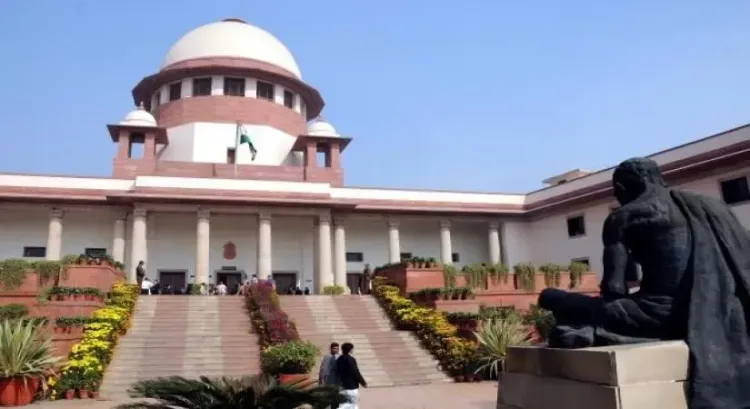Did SC Guidelines on Demolitions Uphold the Dignity and Security of Citizens?

Synopsis
Key Takeaways
- The Supreme Court ruling protects individual rights and dignity.
- Due process must be followed in demolition cases.
- Demolition orders require prior notice and public posting.
- Arbitrary demolitions violate the rule of law.
- Constitutional guarantees are essential for societal justice.
New Delhi, June 19 (NationPress) Chief Justice of India (CJI) B.R. Gavai emphasized that the Supreme Court's ruling against "bulldozer justice" reinforced the idea that constitutional protections must not only defend civil rights but also safeguard the dignity, security, and material welfare of all individuals.
Speaking at Milan Courts in Italy on the topic "The Role of the Constitution in Achieving Socio-Economic Justice in a Nation: Insights from 75 Years of Indian Constitution", CJI highlighted that arbitrary demolitions, which circumvent legal processes, infringe upon the rule of law and the fundamental right to shelter outlined in Article 21 of the Constitution.
Referencing the Supreme Court’s verdict, CJI Gavai remarked: "For the average citizen, building a home is often the result of years of effort, dreams, and hopes. A house transcends mere property; it represents the collective aspirations of a family or individual for stability, security, and a promising future."
He further stated that the executive cannot serve as judge, jury, and executioner simultaneously.
In the case regarding demolition directives, the Supreme Court scrutinized authority decisions to demolish properties of accused individuals as punishment before any court conviction.
In November of the previous year, a Bench comprising Justice B.R. Gavai and Justice K.V. Viswanathan established nationwide guidelines for the demolition of unauthorized structures.
The Gavai-led Bench warned that noncompliance with its directives by state authorities could lead to criminal contempt and prosecution.
By issuing a series of instructions under Article 142 of the Constitution, the apex court mandated that no demolition could proceed without a prior show-cause notice. Furthermore, it stipulated that demolition orders would not be enforced for 15 days and must be posted on a designated digital portal managed by each municipal and local authority.
The Bench clarified that its guidelines would not apply in cases of unauthorized structures situated in public areas, such as roads, streets, footpaths, railway lines, or bodies of water, nor to cases with a court-mandated demolition order.










